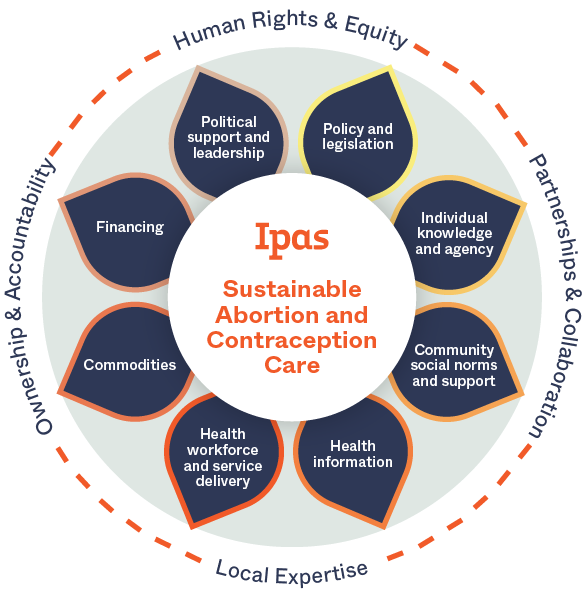National

Nationwide engagement: Expanding access to essential reproductive healthcare
Since 2011, Ipas Bangladesh has been on a mission to revolutionize access to essential reproductive health services. Teaming up with the Ministry of Health and Family Welfare (MoHFW) and other key partners, including the Directorate General of Health Services (DGHS) and the Directorate General of Family Planning (DGFP), we’re making menstrual regulation (MR), postabortion care (PAC), and family planning (FP) services more accessible than ever. Together, we’re ensuring that women and girls have the care they need, where they need it.
Urban

Empowering urban communities: Enhancing SRHR in Dhaka
Ipas Bangladesh’s initiative, “Improving Sexual and Reproductive Health and Rights in Dhaka,” supported by Global Affairs Canada (GAC) aims to strengthen SRHR services and address SGBV issues among women and young adolescents in low socio-economic areas of the city. We are deeply committed and enthusiastic about expanding this project to other cities across Bangladesh, ensuring that more communities facing similar challenges have access to essential SRHR support and services.
Coastal Areas

Coastal resilience: Understanding SRHR challenges in climate-vulnerable regions
Ipas Bangladesh conducted qualitative research in Khulna, Bangladesh, to examine how women’s experiences with climate change impact their sexual and reproductive health decisions, behaviors, and outcomes in cyclone-prone communities. Our efforts are geared towards generating evidence to inform future programs and initiatives aimed at addressing SRHR challenges in these climate-vulnerable regions.
Humanitarian Crisis Zones

Humanitarian assistance: SRHR support in crisis zones
Since October 2017, Ipas has been actively engaged in humanitarian efforts. In collaboration with our implementing partners RHSTEP and BAPSA, and support from UNFPA Ipas has played a pivotal role in training healthcare providers, facilitating logistical support, and establishing quality MR and PAC services within every FDMN camp in Cox’s Bazar. Presently, our intervention spans across 48 health facilities situated in 33 camps in Cox’s Bazar and Bhasanchar. However, sustained support is essential to ensure the continuation of critical SRHR services, for the displaced Rohingya population, amidst the increasingly complex situation in Myanmar and the diminishing funding for humanitarian causes.

